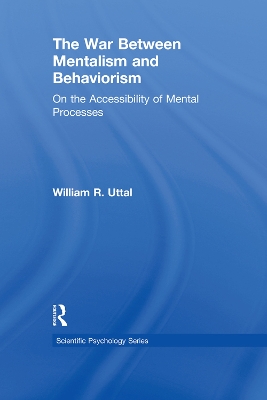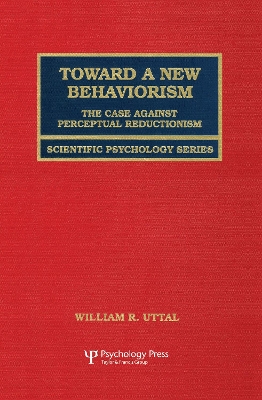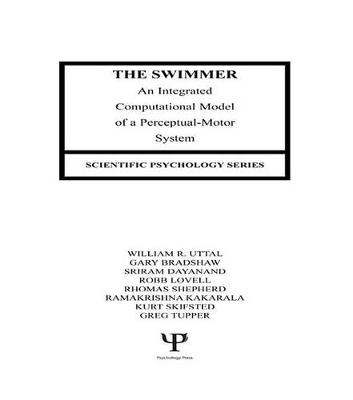Scientific Psychology
3 total works
This book considers one of the most fundamental, but only infrequently considered, issues in psychology--Are mental processes accessible by means of verbal reports and/or experimental assays? It is argues that this is the main characteristic distinguishing between behaviorism and mentalistic cognitivism. The answer posed by the author is that, with few exceptions and for the most fundamental reasons, mental processes are not accessible and that any psychology, such as contemporary cognitivism, based on a putative analysis of mind into its mental components must be fallacious.
Classic and modern arguments against both mentalism and behaviorism are reviewed. In general, it is concluded that most antibehaviorist arguments are based on second order humanistic considerations rather than those underlying the usual scientific standards. Behaviorism represents the best that can be done in a situation of fundamental immeasurability and uncertainty. A modern version is offered in the final chapter of this book.
This volume examines the scientific basis of reductionist approaches to understanding visual perception. The author makes the provocative argument that contemporary neuroscience and cognitive science have gone off on a wild-goose chase in the search for reductionist explanations of perceptual phenomena. This book considers some specific and general examples of this misdirection and suggests an alternative future course for science. It reviews the successes and failures of the sciences' efforts to explain perceptual and other mental functions in the terms of either internal cognitive mechanisms, formal models, or the neural structures from which the brain--the organ of the mind--is constructed.
Although this is an iconoclastic and minority view, the book shows how many contemporary perceptual scientists have qualified their thinking with regard to what their data and theories mean even while generally accepting the empirical findings. It is, without question, an attempted refutation of some of the primary assumptions of contemporary theory. Summing up the author's convictions concerning some of the most important questions of human nature, this book is a statement of a point of view that has provided a framework for his personal answers to some of these important questions of human history.
The Swimmer
by William R Uttal, Gary Bradshaw, Sriram Dayanand, Robb Lovell, and Thomas Shepherd
This research monograph describes a large programming project in which an underwater organism, capable of perceiving, learning, deciding, and navigating, is computationally simulated. The developed computational model serves as a contemporary theory of perceptual-motor performance, embodying much of what is known about human vision and some of what is known about other cognitive processes. This artificial intelligence project has substantial contributions to make to the development of autonomous underwater vehicles. It also makes a specific theoretical statement about the organization and nature of organic perceptual motor systems that may be useful to psychologists, neuroscientists, and theoreticians in a number of other fields.


